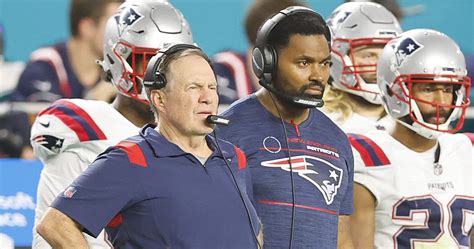
Shedeur Sanders may not have been adequately prepared for the NFL Draft, according to NBC Sports’ Mike Florio. Florio suggested Sanders should have entered the 2024 NFL Draft to gain experience, even if it meant not being a first-round pick, because waiting could jeopardize his future prospects. He emphasized the NFL’s unforgiving nature and the potential for a player’s stock to diminish rapidly.
Mike Florio of NBC Sports believes Shedeur Sanders, the highly touted quarterback for the Colorado Buffaloes, may have made a strategic error by not entering the 2024 NFL Draft. Florio argued that Sanders missed an invaluable opportunity to assess his draft prospects, gather feedback from NFL teams, and potentially improve his long-term standing in the league. His assessment raises questions about the optimal timing for college athletes to make the leap to professional football.
Speaking on a recent broadcast, Florio articulated his position, stating that Sanders should have “taken the shot” in the 2024 draft. His rationale centered on the volatile nature of the NFL and the inherent risks associated with delaying entry into the league. Florio pointed out that an unforeseen injury or a decline in performance could significantly impact a player’s draft stock, potentially costing them millions of dollars and future opportunities.
“Sometimes, you need to take the shot when you have it because you don’t know what tomorrow holds,” Florio cautioned. He further emphasized that the NFL is “not a developmental league,” meaning teams are less willing to invest in projects with significant flaws. According to Florio, entering the draft, even without a guarantee of being a top pick, provides a crucial learning experience and allows players to demonstrate their skills to NFL scouts and coaches firsthand.
Florio’s argument highlights a common dilemma faced by college athletes considering entering the NFL Draft: weighing the potential benefits of immediate entry against the perceived advantages of staying in college for another year. Factors such as improving skills, gaining experience, enhancing draft stock, and securing endorsement deals all play a role in this complex decision-making process.
For Sanders, the decision to remain at Colorado for another season was likely influenced by a combination of factors. As the starting quarterback for the Buffaloes, he has the opportunity to further develop his skills, lead his team to success, and potentially solidify his position as a top prospect in the 2025 NFL Draft. Furthermore, Sanders’ high profile and marketability make him a valuable asset for the university, and he may have lucrative endorsement deals that would be jeopardized by leaving early.
However, Florio’s comments serve as a reminder of the inherent risks associated with delaying entry into the NFL. The league is filled with talented players vying for limited roster spots, and a player’s stock can quickly plummet due to injury, poor performance, or off-field issues. By remaining in college, Sanders is essentially betting on himself to improve his draft stock and avoid any potential pitfalls that could derail his NFL career.
The decision to enter the NFL Draft is a highly personal one, and there is no one-size-fits-all answer. Each player must carefully weigh the potential risks and rewards before making a decision that could have a profound impact on their future. While Sanders may have valid reasons for staying at Colorado, Florio’s perspective underscores the importance of considering all angles before making such a critical choice. The NFL’s landscape is littered with examples of players whose potential was never fully realized, reinforcing Florio’s warning about the ever-present uncertainties that can impact a football career.
The analysis from Florio isn’t simply a critique of Sanders’ decision, but a commentary on the broader landscape of college football and the NFL. It touches on the increasing pressure on young athletes to maximize their earning potential, the role of agents and advisors in guiding these decisions, and the ever-present risk of injury that can alter a career trajectory in an instant. The modern NFL, with its emphasis on speed, precision, and specialized skills, demands that players are not only physically gifted but also mentally prepared for the rigors of professional football. The question of whether Shedeur Sanders will ultimately benefit from his decision to remain at Colorado remains to be seen, but Florio’s words serve as a cautionary tale for all young athletes contemplating their future in professional sports.
Shedeur Sanders’ performance in the upcoming college season will be heavily scrutinized, with NFL scouts and analysts closely monitoring his progress. His ability to improve his skills, demonstrate leadership, and stay healthy will be crucial factors in determining his draft stock in 2025. Only time will tell if Sanders made the right decision, but the debate surrounding his draft prospects underscores the complexities and uncertainties that surround the path to the NFL.
The conversation around Shedeur Sanders’ draft prospects extends beyond his individual talent and potential. It reflects a broader trend in college football, where top players are increasingly leveraging their name, image, and likeness (NIL) rights to earn significant income while still in school. This has created a new dynamic in the decision-making process, as players must now weigh the financial benefits of staying in college against the potential rewards of entering the NFL Draft. Sanders, as one of the most prominent and marketable players in college football, likely factors his NIL earnings into his overall career strategy. This adds another layer of complexity to the debate surrounding his decision to remain at Colorado for another season. The financial implications of playing college football now extend far beyond scholarship money, potentially influencing the choices athletes make regarding their professional futures.
The high-stakes environment of college football, coupled with the potential for lucrative NIL deals, has transformed the landscape of amateur sports. Athletes are now more empowered than ever to control their own destinies and make decisions that align with their long-term financial goals. Shedeur Sanders’ case serves as a prime example of this evolving dynamic, highlighting the increasing sophistication and complexity of the choices facing young athletes today. The impact of NIL deals on college sports is undeniable, and it will continue to shape the decisions of top players for years to come.
Moreover, the rise of social media and the 24/7 news cycle have amplified the scrutiny faced by young athletes. Every move they make, both on and off the field, is subject to intense public attention and analysis. This added pressure can be overwhelming, particularly for players like Shedeur Sanders, who are constantly in the spotlight. The ability to navigate this intense scrutiny and maintain a positive image is becoming an increasingly important skill for athletes seeking to build a successful career in professional sports. The constant attention and social media interactions undeniably shape how young athletes view their careers and make decisions.
Furthermore, the role of agents and advisors in guiding young athletes has become increasingly influential. These professionals play a critical role in helping players navigate the complex world of college football and the NFL, providing advice on everything from training and development to contract negotiations and endorsement deals. The quality of representation can have a significant impact on a player’s career trajectory, making it essential for athletes to choose their agents and advisors wisely. A strong support system can make all the difference in helping a young athlete achieve their full potential and avoid the pitfalls that can derail a promising career. Agents are now vital navigators of both the college and professional landscape.
In Shedeur Sanders’ case, his father, Deion Sanders, serves as both his coach and a trusted advisor. This unique dynamic provides Sanders with a level of support and guidance that few other college athletes can match. Deion Sanders’ experience as a Hall of Fame NFL player and successful coach gives him a unique perspective on the challenges and opportunities facing his son. However, the father-son relationship also adds another layer of complexity to the decision-making process, as Shedeur must balance his own aspirations with his father’s guidance and expectations. This close relationship is undoubtedly a significant factor in Shedeur’s decision-making process.
The ultimate question remains: did Shedeur Sanders make the right decision by staying at Colorado for another season? The answer to that question will depend on a variety of factors, including his performance on the field, his ability to stay healthy, and the evolving landscape of the NFL. While Mike Florio believes that Sanders may have missed an opportunity to gain valuable experience and improve his draft stock, Sanders himself clearly feels confident in his ability to achieve his goals by remaining in college. Only time will tell whether his gamble will pay off. The speculation and analysis will continue until the 2025 NFL Draft, where Sanders’ future will ultimately be determined.
The pressure on Shedeur Sanders is immense, not only to perform well individually but also to lead his team to success. The Colorado Buffaloes have generated significant buzz since Deion Sanders took over as head coach, and expectations are high for the upcoming season. Sanders must navigate these expectations while also focusing on his own development and preparing for the NFL. This dual pressure requires a rare combination of talent, maturity, and focus. The spotlight on the Buffaloes is brighter than ever, adding to the intensity surrounding Sanders’ every move.
The analysis of Shedeur Sanders’ decision also touches on the broader trend of college quarterbacks delaying their entry into the NFL Draft. In recent years, several highly touted quarterbacks have chosen to stay in college for an additional season, often with the goal of improving their draft stock or leading their teams to championships. This trend reflects the increasing value placed on experience and maturity at the quarterback position, as NFL teams are often hesitant to invest heavily in young quarterbacks who have not demonstrated a proven track record of success. Sanders’ decision aligns with this trend, suggesting that he believes he can further develop his skills and increase his value by remaining in college. This pattern in college football is reshaping the quarterback landscape in the NFL.
Moreover, the debate surrounding Shedeur Sanders’ draft prospects highlights the subjective nature of talent evaluation in the NFL. While objective metrics such as completion percentage, passing yards, and touchdown-to-interception ratio play a role in assessing a quarterback’s potential, subjective factors such as leadership, poise under pressure, and ability to read defenses are also critically important. These subjective qualities are often difficult to quantify, leading to differing opinions among scouts and analysts. The evaluation of Sanders’ talent is undoubtedly influenced by these subjective factors, contributing to the ongoing debate surrounding his draft prospects. The intangible qualities often separate good quarterbacks from great ones.
The discussion about Sanders’ draft prospects also brings into focus the challenges faced by college quarterbacks in transitioning to the NFL. The speed, complexity, and physicality of the NFL game are significantly greater than what college quarterbacks typically experience. The learning curve can be steep, and many highly touted college quarterbacks struggle to adapt to the demands of the professional game. This underscores the importance of evaluating a quarterback’s ability to process information quickly, make accurate reads, and deliver the ball with precision under pressure. These are the skills that ultimately determine a quarterback’s success in the NFL. The transition from college to the pros is a major hurdle for every quarterback.
Ultimately, Shedeur Sanders’ decision to remain at Colorado for another season is a calculated risk. He is betting on himself to improve his skills, lead his team to success, and solidify his position as a top prospect in the 2025 NFL Draft. While there are inherent risks associated with delaying entry into the NFL, Sanders clearly believes that the potential rewards outweigh those risks. Only time will tell whether his gamble will pay off, but the debate surrounding his draft prospects underscores the complexities and uncertainties that surround the path to the NFL. The next year will be a pivotal one in shaping his professional future.
The evolving landscape of college sports and the NFL continues to present new challenges and opportunities for young athletes. Shedeur Sanders’ case serves as a prime example of this dynamic, highlighting the increasing sophistication and complexity of the choices facing athletes today. As the debate surrounding his draft prospects continues, one thing is clear: the path to the NFL is never straightforward, and success requires a combination of talent, hard work, and strategic decision-making. The journey to the NFL is a complex one, filled with both promise and peril.
FAQ:
-
Why does Mike Florio think Shedeur Sanders should have entered the 2024 NFL Draft?
Mike Florio believes Shedeur Sanders should have entered the 2024 NFL Draft to gain valuable experience, gather feedback from NFL teams, and assess his draft prospects. He argues that waiting could be risky due to potential injuries or a decline in performance, which could negatively impact his future draft stock. Florio emphasizes the NFL’s unforgiving nature, stating that it’s “not a developmental league.”
-
What are the risks associated with Shedeur Sanders staying in college for another year?
The risks include potential injuries, a decline in performance, or unforeseen circumstances that could lower his draft stock. Florio highlights that “sometimes, you need to take the shot when you have it because you don’t know what tomorrow holds.” He suggests that delaying entry into the NFL is a gamble, as the landscape can change quickly, and a player’s value can diminish.
-
What factors likely influenced Shedeur Sanders’ decision to remain at Colorado?
Factors include the opportunity to further develop his skills, lead his team to success, improve his draft stock, and potentially secure lucrative endorsement deals. As the starting quarterback for the Buffaloes, Sanders has a high profile and marketability, making him a valuable asset for the university. His relationship with his father, Deion Sanders, who is also his coach, likely played a significant role in his decision.
-
How has the rise of NIL deals impacted the decision-making process for college athletes like Shedeur Sanders?
The rise of NIL (Name, Image, and Likeness) deals has added a new layer of complexity to the decision-making process. Athletes must now weigh the financial benefits of staying in college, where they can earn significant income through endorsements and sponsorships, against the potential rewards of entering the NFL Draft. Sanders, as a highly marketable player, likely factors his NIL earnings into his overall career strategy.
-
What are the key skills and qualities that NFL teams look for in a quarterback?
NFL teams look for a combination of objective metrics and subjective qualities. Objective metrics include completion percentage, passing yards, and touchdown-to-interception ratio. Subjective qualities include leadership, poise under pressure, ability to read defenses, and the ability to process information quickly. These skills are essential for transitioning from college to the NFL and achieving success in the professional game.









